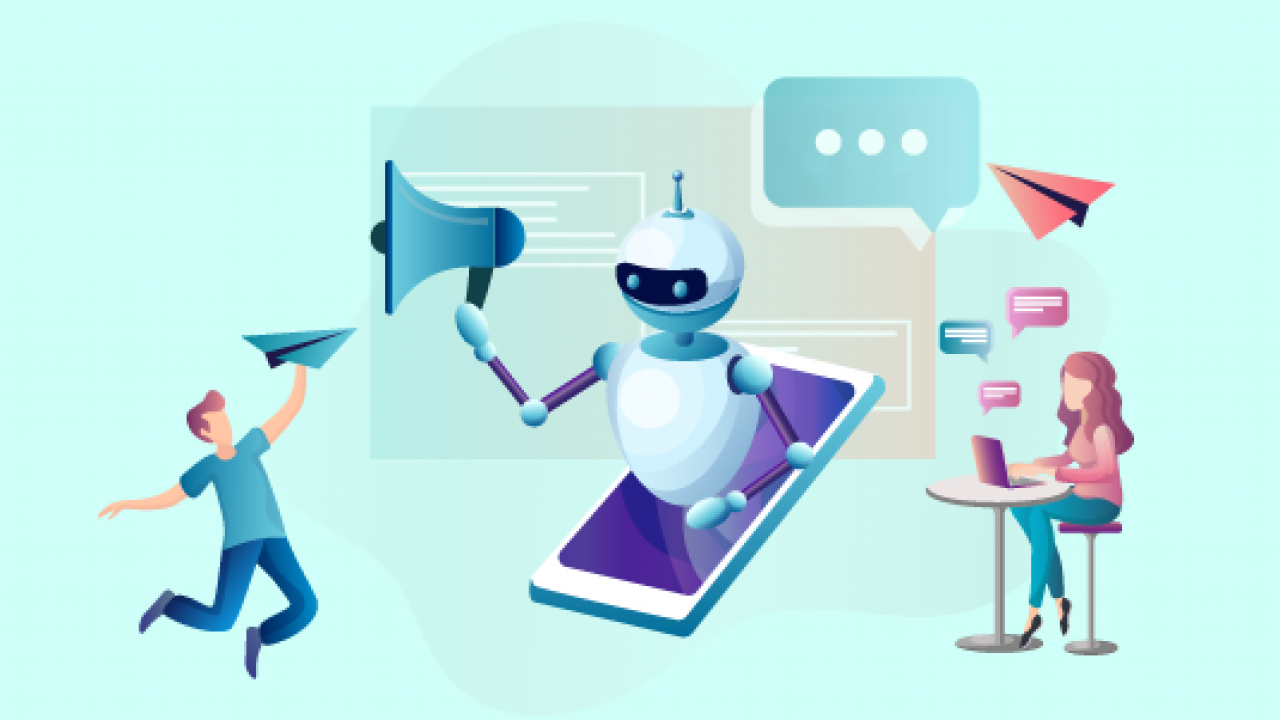The Pros and Cons of Using AI Chatbots in Your Business
 Karl Bolinger
Karl Bolinger
TLDR: This article explores the pros and cons of using AI chatbots in business. While chatbots offer a cost-effective and efficient solution to handling customer queries and automating routine tasks, they also have limitations such as the inability to handle complex queries and a lack of emotional intelligence. Businesses should assess their specific needs and invest in proper training and maintenance to ensure chatbots function optimally and that customer data is secure. Overall, AI chatbots can be a valuable asset to businesses looking to streamline their operations and improve customer service.
Artificial Intelligence (AI) is a game-changer in the business world, and one of the most promising applications is using AI chatbots. Chatbots are computer programs that can simulate conversations with human users through natural language processing (NLP) and machine learning (ML) algorithms. They are gaining traction across various industries, from customer service to sales and marketing. This article will explore the pros and cons of using AI chatbots in your business.
Pros of Using AI Chatbots
Improved Customer Service One of the main benefits of AI chatbots is that they can provide 24/7 customer support, making it easier for customers to get answers to their questions quickly. They can also handle multiple queries simultaneously, reducing wait times and improving customer satisfaction. Moreover, chatbots can personalize their responses based on customer data, such as purchase history or browsing behavior, improving the overall customer experience.
Cost Savings Implementing AI chatbots in your business can be cost-effective in the long run. Without human intervention, they can handle repetitive and routine tasks, such as answering FAQs. This can free up human resources to focus on more complex tasks, such as resolving customer issues. Additionally, chatbots can reduce labor costs, as they don't require salaries or benefits and can operate 24/7 without needing breaks.
Increased Efficiency AI chatbots can improve efficiency by automating time-consuming and repetitive tasks. This can result in faster response times, reduced workload, and better time management for human employees. Moreover, chatbots can handle multiple queries simultaneously, increasing productivity and improved workflow.
Scalability One of the significant advantages of AI chatbots is that they can easily scale to meet the growing needs of your business. As your business expands, you can increase the number of chatbots to handle the increased volume of customer queries. This can result in faster response times and improved customer satisfaction without the need for additional human resources.
Data Analytics AI chatbots can collect and analyze customer data, providing insights into customer behavior and preferences. This information can be used to improve marketing strategies, personalize customer experiences, and enhance product development.
Cons of Using AI Chatbots
Limited Capability While AI chatbots have come a long way in understanding and responding to human queries, they are still limited in their capabilities. They may struggle with complex questions or situations requiring human intuition and empathy.
Initial Investment Implementing AI chatbots in your business requires an initial investment in software development and training. While the long-term cost savings can be significant, the initial cost can be a barrier to entry for small businesses.
Maintenance and Upgrades Like any software, AI chatbots require regular maintenance and updates to ensure they function optimally. This can be time-consuming and require technical expertise, adding to the cost of implementation.
Security Risks AI chatbots may pose a security risk if they are not properly secured. They may store sensitive customer data, which could lead to a data breach if hacked. Therefore, it's essential to ensure that chatbots are secure and that customer data is protected.
Lack of Human Interaction While AI chatbots can provide efficient and personalized responses, they lack the human touch that some customers may prefer. Speaking to a human representative may be more comforting and reassuring for some customers than interacting with a machine.
Conclusion
AI chatbots are a promising technology that can bring significant benefits to businesses. They can improve customer service, increase efficiency, and reduce costs. However, they are not a one-size-fits-all solution, and their implementation should be considered carefully. Businesses should weigh the pros and cons and determine whether AI chatbots fit their unique needs.
Despite the limitations of AI chatbots, the benefits outweigh the cons for many businesses. They can provide a cost-effective and efficient solution to customer queries, freeing up human resources for more complex tasks. Additionally, chatbots can provide valuable insights into customer behavior, which can be used to improve marketing strategies and product development.
Businesses considering AI chatbots should assess their specific needs and determine if chatbots can meet those needs. Investing in proper training and maintenance is essential to ensure chatbots are functioning optimally and that customer data is secure.
In conclusion, AI chatbots are a promising technology that can benefit businesses significantly. While they may not be a perfect solution, they offer a cost-effective and efficient way to handle customer queries, automate routine tasks, and provide valuable insights into customer behavior. With proper implementation and management, AI chatbots can be valuable to businesses looking to streamline their operations and improve their customer service.
Subscribe to my newsletter
Read articles from Karl Bolinger directly inside your inbox. Subscribe to the newsletter, and don't miss out.
Written by

Karl Bolinger
Karl Bolinger
I'm an artist who has technical skills. I am a practicing ceramicist, photographer, and installation artist. I've worked at cool places such as Qualys and Pendo. Today, I operate within HashiCorp's IT team, Corporate Digital Transformation. I run Digital Adoption and Knowledge Management. In other words, I drive value realization and curate the right knowledge to the right person and the best time. I've learned to pivot and take my creative and problem-solving skills and apply them in tech. I've built solutions, products, managed projects, and more.